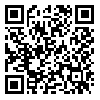
Journal of Health And Care

Volume 19, Issue 2 (summer 2017)
JHC 2017, 19(2): 152-168 |
Back to browse issues page
Download citation:
BibTeX | RIS | EndNote | Medlars | ProCite | Reference Manager | RefWorks
Send citation to:



BibTeX | RIS | EndNote | Medlars | ProCite | Reference Manager | RefWorks
Send citation to:
Kelishadi R, Esmaeil Motlagh M, Rajaei L, Massoudi S, Ardalan G, Roudbari M, et al . Needs Assessment for Health Status and Self-Care Ability of Youths Aged 18-29 Years in Selected Provinces of Iran. JHC 2017; 19 (2) :152-168
URL: http://hcjournal.arums.ac.ir/article-1-788-en.html
URL: http://hcjournal.arums.ac.ir/article-1-788-en.html
R Kelishadi 
 , M Esmaeil Motlagh
, M Esmaeil Motlagh 
 , L Rajaei
, L Rajaei 
 , S Massoudi
, S Massoudi 
 , G Ardalan
, G Ardalan 
 , M Roudbari
, M Roudbari 
 , M Shahpasnd
, M Shahpasnd 
 , Z Askaravy
, Z Askaravy 
 , M Sartipyzadeh
, M Sartipyzadeh 
 , N Mozafarian
, N Mozafarian 


 , M Esmaeil Motlagh
, M Esmaeil Motlagh 
 , L Rajaei
, L Rajaei 
 , S Massoudi
, S Massoudi 
 , G Ardalan
, G Ardalan 
 , M Roudbari
, M Roudbari 
 , M Shahpasnd
, M Shahpasnd 
 , Z Askaravy
, Z Askaravy 
 , M Sartipyzadeh
, M Sartipyzadeh 
 , N Mozafarian
, N Mozafarian 

Department of Pediatrics, Child Growth and Development Research Center, Research Institute for Primordial Prevention of Non-Communicable Disease, Isfahan University of Medical Sciences, Isfahan, Iran
Abstract: (3571 Views)
Background and aim: According to the important role of youth people in the society, assessment of their health and self-care needs is central for future planning. Therefore, this study aimed to determine and prioritize youth's health needs and self-care capabilities in some selected provinces of Iran.
Methods: This survey was conducted among 6640 young people, aged 18 to 29 years whom selected through cluster sampling method from 5 provinces of Khorasan-Razavi, Tehran, Khuzestan, Kermanshah and Gilan in Iran. Youth's information was collected by the questionnaires of Health Status (HS) and Self-care Capabilities (SCC). To analyze the data SPSSv.18 was used. All descriptive statistics were reported as mean and standard deviation (SD). In doing statistical tests, p-values less than 0.05 were considered as significant.
Results: Based on the average score, three main needs, of the young people were including of the need to be trained regarding life skills (9.7±3.52), social health (9.2±4) and Choice of spouse skills (9.1±3.7). Need for Periodic checkups was the first priority need in the domain of health service needs (2.6±0.61). Youth's priorities for health promotion were counseling need for marriage (5.2±1.99) and social communication skills (5±1.92). Radio, television and family were reported as the main methods in training the youth.
Conclusion: Development of programs to meet the youth's fundamental requirements accordance with their educational needs priorities is necessary. Expanding advisory services to improve youth health skills is proposed as well.
Methods: This survey was conducted among 6640 young people, aged 18 to 29 years whom selected through cluster sampling method from 5 provinces of Khorasan-Razavi, Tehran, Khuzestan, Kermanshah and Gilan in Iran. Youth's information was collected by the questionnaires of Health Status (HS) and Self-care Capabilities (SCC). To analyze the data SPSSv.18 was used. All descriptive statistics were reported as mean and standard deviation (SD). In doing statistical tests, p-values less than 0.05 were considered as significant.
Results: Based on the average score, three main needs, of the young people were including of the need to be trained regarding life skills (9.7±3.52), social health (9.2±4) and Choice of spouse skills (9.1±3.7). Need for Periodic checkups was the first priority need in the domain of health service needs (2.6±0.61). Youth's priorities for health promotion were counseling need for marriage (5.2±1.99) and social communication skills (5±1.92). Radio, television and family were reported as the main methods in training the youth.
Conclusion: Development of programs to meet the youth's fundamental requirements accordance with their educational needs priorities is necessary. Expanding advisory services to improve youth health skills is proposed as well.
Type of Study: quasi-experimental |
Received: 2016/09/22 | Accepted: 2017/06/8 | Published: 2017/09/7
Received: 2016/09/22 | Accepted: 2017/06/8 | Published: 2017/09/7
Send email to the article author
| Rights and permissions | |
 |
This work is licensed under a Creative Commons Attribution-NonCommercial 4.0 International License. |
